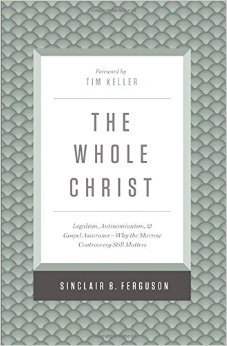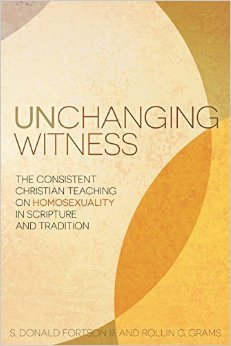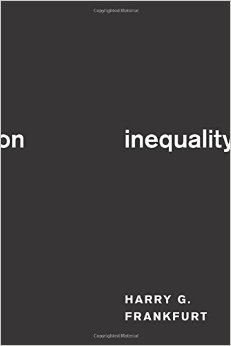Kevin DeYoung's Blog, page 39
April 21, 2016
9 Marks of Healthy Biblical Complementarianism
 In the conservative evangelical circles I mainly inhabit, there is almost no controversy about whether the Bible allows for women to be ordained as pastors and elders. The people I talk to and listen to are firmly convinced complementarians. That is, they (we) believe that God created men and women equal in worth and dignity but with different roles in the home and in the church. At least very least, this means the office of pastor or elder is to be filled by qualified men. The core of complementarianism is not up for discussion.
In the conservative evangelical circles I mainly inhabit, there is almost no controversy about whether the Bible allows for women to be ordained as pastors and elders. The people I talk to and listen to are firmly convinced complementarians. That is, they (we) believe that God created men and women equal in worth and dignity but with different roles in the home and in the church. At least very least, this means the office of pastor or elder is to be filled by qualified men. The core of complementarianism is not up for discussion.
How we talk about complementarianism is.
And how we practice complementarianism too.
Is the problem that we lack courage or that we are missing compassion? Have we gotten too soft? Or have we gotten too restrictive? Does complementarianism need a re-branding, a reformation, a revival, or a retrieval?
The conversations can be pointed, the rhetoric heated. And yet, the fact that there is an intra-complementarian discussion taking place is a sign of the relative success of the movement. The complementarian camp is large enough to contain a fairly disparate group of people and personalities. The presence of disagreements and the need for definitions should come as no surprise. Sharpening is not a problem, so long as we are not unnecessarily sharp with each other.
So what does a healthy complementarianism look like? I certainly don’t have the last word on the subject. But here are nine important marks.
1. Creation not accommodation. The differences between men and women are rooted in divine design. This is clear from 1 Timothy 2 and from Genesis 1-2. Complementarianism is not about Paul accommodating to a patriarchal first century culture, let alone about us accommodating the expectations of our cultures inside or outside the church. God has something to say about manhood and womanhood. And what God has to say is rooted in what he designed.
2. Function not simply ordination. The first point may seem obvious, like Complementarianism 101, but it’s an important foundation for this second point. If men and women are different by creational design, then we can’t simply quarantine “ordination” and say that manhood and womanhood have no bearing on church ministry or church roles so long as the pastors and elders are men. The issue is not mainly titles or labels or the laying on of hands. The issue is about function. To be sure, complementarians may not agree on where to draw all the lines concerning home groups and Sunday school classes and public worship, but as a starting place for these discussions we have to remember we are talking about the flourishing of divine design, not adhering to a set of narrow and seemingly arbitrary rules.
3. Warmly embraced not quickly checked off. There’s a difference between affirming complementarianism as an act of intellectual throat clearing—“Look, I don’t think women should be pastors either, but…”—and joyfully affirming the vision as good and beautiful and best.
4. Convictional not merely traditional. There’s also a difference between a thoughtful complementarianism based on the exegesis and application of Scripture and a clumsy complementarianism that is little more than the default position of an overly prescriptive cultural traditionalism.
5. Tender not triumphalistic. No doubt, sometimes the troops need to be rallied. In the sexual insanity of our day, the call to courage is surely appropriate. But we need to realize that all kinds of people can be listening in as we talk about biblical manhood and womanhood. Some of those listening are wavering and some are wolves, but some are hurt and some resonate with broken hearts more than with raised banners. We need to be on guard against rhetoric that is all caps all the time. Let us be persuaders, not just pugilists.
6. Principial not personal. It’s human nature: we personalize when we listen and universalize when we speak. Because we’ve gone toe to toe with liberals, we think battle mode is the way to go, always. Or because we’ve had a bad pastor or a brutish boyfriend, we are always slamming the complementarianism we say we believe in. Don’t size up the whole complementarian universe based on a couple of your most painful experiences.
7. Bible and theology affirming not wife and motherhood belittling. We want the women in our churches to read the Bible, study the Bible, and help others understand the Bible. I love that the women at URC are eager to go deep, get good theology, and challenge their hearts and minds. Yes and Amen to women who study the Scriptures. Go ahead and talk about Deuteronomy as well as diapers. And yet, let’s not ridicule the women for talking about diapers! For most women, at some point in their lives, and often for most of their lives, their identity (after being a child of God created in God’s image) will be bound up in being a wife and especially a mother. Moving deeper into the word does not mean moving away from Titus 2.
8. Careful with words not careless. We all use labels. It’s hard to speak of our immeasurably complicated world without them. But if we use negative sounding isms, let’s explain what we mean by them. Let’s not casually label others as “feminist,” “liberal,” “patriarchal,” or “hierarchical,” unless the situation clearly calls for it and we make clear what we mean. A church that has women read the sermon text (a practice I’m not in favor of) is not automatically wed to the spirit of the age, nor is a church which only allows men to teach classes and lead small groups necessarily oppressive and Neanderthal.
9. Leaning against the culture instead of into the culture. The core convictions of complementarianism will not magically seep into our children or into our churches. The cultural breeze is blowing too stiffly against us. Biblical manhood and womanhood must be taught as well as caught. When it comes to the goodness of God’s divine design for men and women, unless we are pushing forward against the forces of sports and media and politics and business and entertainment, we will end up drifting in wrong direction.
I remember years ago hearing a pastor describe his position on homosexuality as theologically conservative and socially progressive. I could tell by the way he was speaking that everything in him was leaning with the wind. He was holding on to orthodoxy by a thin string. So I wasn’t surprised a few years later when he announced the he had changed his mind on homosexuality and now saw nothing wrong with same-sex sexual relationships. In the same way, we must be careful that our complementarianism is deep, thoughtful, rooted, biblical, and utterly at home with being despised, misunderstood, and counter-cultural. Faithfulness does not mean making as many enemies as possible, but it does mean that for the sake of the good, the true, and the beautiful, we are fine with facing opposition when it is impossible to avoid.
April 18, 2016
Theological Primer: The Holy Spirit
From time to time I try to post brief articles like this one as a short primer on some topic in systematic theology. The aim is clarity. The approach is brevity. Previous entries were limited to 500 words. I cut myself some slack this time and upped the ante to 1000 words. Starting now.
 Many Christians rarely think about the Holy Spirit. God the Father we know about. God the Son we think about all the time. But God the Holy Spirit? There are fewer songs to him, fewer meditations about him, and fewer churches named after him.
Many Christians rarely think about the Holy Spirit. God the Father we know about. God the Son we think about all the time. But God the Holy Spirit? There are fewer songs to him, fewer meditations about him, and fewer churches named after him.
But this may not be altogether a bad thing.
Granted, it is very possible that traditional conservative Christians know too little about, and cherish to lightly, the person and work of the Holy Spirit. But before we pursue this criticism too far, we need to remember that the New Testament itself says a great deal more about Jesus Christ and God the Father than it does about the Spirit. More importantly, we must not forget that the work of the Holy Spirit is first of all to glorify Christ (John 16:14). So whether we realize it or not, we are very intimately connected with the work of the Spirit, because whenever we are drawn to Christ as Savior, led to worship Christ as Lord, made to behold Christ as glorious, we are being operated on by the Holy Spirit.
The focus of most of our churches is on Christ and not the Spirit, because that’s the focus of the apostolic gospel, the New Testament, and the Holy Spirit himself! Of course, this is not to suggest that singing to the Holy Spirit or worshiping him is inappropriate. Far from it. Every person of the Trinity is equally glorious and deserving of praise. But Spirit-led worship has at its heart not an emotive experience (though emotions are good) nor a spontaneous feel (though spontaneity isn’t bad), but rather a Christ-exalting, cross-focused, word-centered event where the name of Jesus is praised in the power of the Spirit to the glory of God the Father.
A Personal Spirit
On Sunday night I saw a few minutes of the Morgan Freeman Story of God series on the National Geographic channel. It only took a few minutes to hear both a Hindu and a Jew refer to God as a force, a power, or a binding energy. There was no suggestion that God–whether one or many–was a person with whom we could have a relationship. So it bears repeating: the Holy Spirit is not a force or a principle of nature or a part of God or mode of his existence. The Holy Spirit is a person—a teaching (Luke 12:11-12), speaking (Acts 13:2), interceding (Rom. 8:26), grieving (Eph. 4:30) person—distinct from the Father and the Son.
The Spirit is eternal God (Heb. 9:14). He is everywhere, which does not mean the Spirit is everything or in everything, but rather that there is nowhere we can go where the Spirit isn’t also present (Psalm 139:7). The Spirit alone knows the mind of God (1 Cor. 2:10-11). The Holy Spirit is fully divine, his name being used interchangeably with the name “God” (Acts 5:3-4; 1 Cor. 3:16; 6:19). The Holy Spirit is active in our salvation along with the Father and the Son (1 Peter 1:1-2). Jesus commands his disciples to be baptized in the name (singular) of all three persons (plural) of the Trinity, underlying the equality of rank, power, and majesty among Father, Son, and Holy Spirit, while also emphasizing their fundamental unity (Matt. 28:19; cf. 2 Cor. 13:14).
The Holy Spirit is not simply an omnipresent being that is with us in the sense that he is everywhere and so wherever we go there he will be also. The Spirit lives within us (1 Cor. 6:19) and makes his dwelling in our hearts (2 Cor. 1:22; Gal. 4:6). We have fellowship with him (2 Cor. 13:14). This imagery should not be understood spatially as if the Spirit gets his mail delivered in the upper left chamber of that beating muscle in the chest. Rather, the Spirit dwells in us by animating our personality, shaping our character, renewing our minds, and stirring our emotions.
A Beneficial Spirit
There are at least three benefits we experience through work of the Holy Spirit.
The first benefit is that we share in Christ and all his blessings. We too are looked upon with filial favor. Everything Christ accomplished is ours. All he won is ours. The promised inheritance of Abraham is ours (Gal. 3:14). All this and more because we belong to Christ and Christ’s blessings belong to us through ministrations of the Spirit.
The second benefit is the Holy Spirit’s comfort. Most of us have heard that the Holy Spirit is a Comforter (John 14:16 KJV). Other translations render paracletos a “Helper” (ESV), a “Counselor” (NIV), or an “Advocate” (NRSV), but the truth is still there: God comforts his people by the Holy Spirit. This happens in a number of ways. The Spirit may supernaturally strengthen your soul and give you a peace that passes understanding or a calm confidence in the work of the Lord (Acts 9:31). He may also comfort you through other Christians as you share in the fellowship of the Holy Spirit. As the Spirit of truth, he will often speak to you through the Word of God, leading you into all truth (John 16:12), encouraging you with the words of Scripture he inspired and now illuminates. He may cause you to remember a precious biblical truth or direct your thoughts to the finished work of Christ or give you eyes to see more clearly the glory of God. The Spirit may comfort you with the gift of assurance so that you more boldly embrace your new identity in Christ and more firmly trust the promise of eternal life.
The third benefit is the Holy Spirit’s presence forever. Before studying the Heidelberg Catechism in depth several years ago, I had not really thought about Jesus’s promise that the Holy Spirit would be with us forever (John 14:16), but the promise is very good news. In heaven, the Spirit will continue to keep us holy. He will continue to teach us more about the inexhaustible riches of Christ. He will continue to be the personal bond that unites believers in fellowship. And He will continue to minister to us the presence of God the Father and God the Son, who together with the Holy Spirit are Triune God, blessed forevermore, Amen.
April 17, 2016
Monday Morning Humor
April 11, 2016
Good Conferences are Great, The Church Is Essential
 I love Together for the Gospel. I love Mark Dever’s vision behind it. I love the fellowship among the speakers. I love the bookstore. I love the singing. I thank God for good conferences like T4G.
I love Together for the Gospel. I love Mark Dever’s vision behind it. I love the fellowship among the speakers. I love the bookstore. I love the singing. I thank God for good conferences like T4G.
But, as everyone on the stage this week will eagerly agree, Jesus made no promises to build good conferences. He did, however, promise to build the church (Matt. 16:18). Conferences are good in so far as they can strengthen what is essential.
Recently, Reformed Theological Seminary interviewed a few of the plenary speakers to talk about the vision behind T4G and how we should think about the wider conference phenomenon. The article will be in the next issue of RTS’s Ministry & Leadership magazine. Here’s my portion of the interview (some of which probably didn’t make the final cut).
How did the T4G partnership come about?
The Together for the Gospel conference is unique in that it was borne out of the friendship among Mark Dever, CJ Mahaney, Al Mohler, and Lig Duncan. I’ve been fortunate enough to be asked to participate as a speaker at the conference for several years now. Every January the plenary speakers get together for three days of sharing, prayer, and laughter. It’s a highlight of the year and continues to serve as a catalyst and the glue for the conference itself.
What was the purpose behind organizing the conferences — what audience were you looking to reach?
Mark Dever has always been adamant that this is a conference for pastors. While we are happy for others to attend–and indeed lots of students and leaders do–we are purposefully trying to equip and edifying pastors.
What has surprised you the most about the response to T4G and related conferences?
I really don’t think Mark or any of the other principals have any ego wrapped up in the conference. If ending the conference was the best thing for the church, they’d do it without any hesitation. But it seems like the conference continues to meet a need and continues to be used by God to help the local church. We are grateful.
What is conference attendance uniquely positioned to accomplish in people’s lives?
Conferences are far, far, far from the most important thing in a Christians life–like a thousand miles away. But they are one of the means God has seemed pleased to use in the past 100-150 years. It can be powerful to sing songs with so many people, and the fellowship and comradery across denominational lines in powerful. We always send our staff to one big conference a year (usually T4G or TGC). The time away together as a team is invaluable, as is the opportunity to buy good books and sit under a steady stream (torrent?) of good teaching.
Why else do you think people are being drawn to T4G and related conferences?
It’s amazing: I would have thought that interest in the conference might be waning by now, but clearly it’s not. I think people are hungry for a big picture of God. I think that want a warm orthodoxy with passion, with love, and with edges. I think they want to hear God’s word, sing God’s word, and be with people who love the same things.
What’s your vision for the future of T4G and related conferences, and with that in mind, what words of caution do you have concerning the “conference phenomenon”?
Of course, any time you have a big conference there will be dangers associated with pride, envy, man-pleasing, idolatry, and like. More subtly, we must make sure conferences come alongside the church, to encourage it, not to supersede it. A conference like T4G must never, ever be a substitute for the local church. The local pastor is a position instituted and ordained by God. Conference speaker is not. It is the work of the church to evangelize the lost, disciple the found, receive new members, exercise church discipline, build up the saints, carry out the Great Commission, administer the sacraments, and safeguard the truth of God’s word. At best, conferences like T4G encourage pastors in all these aims. Where a conference makes these things more difficult, it has outlived its usefulness. I’d like to think T4G is still something God can use to bless pastors and strengthen the local church.
April 10, 2016
Monday Morning Humor
April 7, 2016
Safe Schools, Gender Non-Conformity, and Common Sense
 Recently, the State Board of Education for the state of Michigan released its Statement and Guidance on Safe and Supportive Learning Environments for Lesbian, Gay, Bisexual, Transgender, and Questioning (LGBTQ) Students. The Michigan Department of Education (MDE) has requested public comment on the draft statement. Here is the letter I submitted to the MDE supervisor in Lansing.
Recently, the State Board of Education for the state of Michigan released its Statement and Guidance on Safe and Supportive Learning Environments for Lesbian, Gay, Bisexual, Transgender, and Questioning (LGBTQ) Students. The Michigan Department of Education (MDE) has requested public comment on the draft statement. Here is the letter I submitted to the MDE supervisor in Lansing.
*******
To the Michigan Department of Education,
I am writing to comment on the document entitled State Board of Education Statement and Guidance on Safe and Supportive Learning Environments for Lesbian, Gay, Bisexual, Transgender and Questioning (LGBTQ) Students (hereafter SBE Statement). I am grateful that the Michigan Department of Education (MDE) has initiated a process for receiving public feedback on such a controversial matter. In addition to sending my comments by surface mail, I will also post this written response online.
Before I get to my comments, let me tell you a little about myself. I am a graduate of the Michigan public school system (Jenison High School, class of 1995). My wife and I have six children; the four who have reached school age are enrolled in East Lansing Public Schools. For the past two years I have served on our district’s Sex Education Advisory Board. Moreover, as a pastor in the community, I know many parents, teachers, and staff who work hard to serve the students in our public schools. I am grateful for the many fine teachers I had as a student, and for the many excellent teachers my students now have. I do not write this letter as someone who has been uninvolved or unconcerned with the health and wellbeing of our state’s public schools.
Which is why I am so troubled by the SBE Statement.
First, the SBE Statement does little to make the case that such sweeping changes are necessary. The ostensible purpose behind these new guidelines is to promote “a safe, supportive, and inclusive learning environment for all students” (p. 2). To be sure, wherever there is name-calling and threatening behavior directed toward LGBTQ students, such behavior should be censured and corrected. We all agree that all students—Christians, Jews, Muslims, Mormons, rich, poor, male, female, gay, straight, and those wrestling with issues of gender identity—deserve to be treated kindly and with dignity and respect.
And yet, more work needs to be shown before we can conclude that our schools are manifestly unsafe places for LGBTQ students. It is disappointing to find that a document from the State Board of Education contain only two footnotes to support the claim that there is a “hostile school environment” across the state (p. 2). The first footnote cites “unpublished data” from the 2015 Youth Risk Behavior Study. How are we to interact with the statistics offered in the SBE Statement if we have no access to them? I doubt this approach would pass academic muster in our best schools. We simply do not know what we are comparing without being able to see all the data.
The second footnote cites a national report released by the Gay, Lesbian and Straight Education Network (GLSEN) which examines the difficulties facing LGBTQ students in our schools. For any student to be harassed, bullied, threatened, or assaulted is deplorable, but as the report indicates, students also face these difficulties because of religion, race, gender, and disability. Depending on each child and each district, students may feel out of place because they are gay or lesbian, or because they think marriage is between a man and a woman, or because they are Black or Hispanic, or because English is not their first language, or because they do not eat pork, or because they read the Bible in the cafeteria, or because their parents are Republicans or Democrats, or because they use a wheelchair or talk with a stutter. No one wants to see students struggle to fit in or feel accepted. But one cannot help but wonder whether a cultural agenda is being lobbied for under the guise of safety. In 1995, GLSEN’s founder spoke at a conference on “Winning the Culture War,” in which he observed:
Titling our report “Making Schools Safe for Gay and Lesbian Youth,” we automatically threw our opponents onto the defensive and stole their best line of attack. This framing short-circuited their arguments and left them back-pedaling from day one. Finding the effective frame for your community is the key to victory. It must be linked to universal values that everyone in the community has in common. In Massachusetts, no one could speak up against our frame and say, “Why, yes, I do think students should kill themselves”: this allowed us to set the terms for the debate. (Massachusetts News, December 2000).
Again, let me reiterate: every student deserves to be treated with kindness, dignity, and respect. The teenage years are hard for many students. But the massive changes proposed in the SBE Statement should be accompanied with massive research to support the need for those proposals. It would be a shame if “safe space” was really less about student safety and more about the sexual revolution.
Second, the SBE Statement usurps the role of parents in the formation of their children. Few issues are more important and more essential than helping one’s child navigate puberty and come to a healthy sense of sexual boundaries and sexual identity. While an educational institution may play a part in this development, the role of the school is only to come alongside the parent, never to cut the parent out of the process. The provisions under “Privacy and Confidentiality Regarding Disclosures” (p. 5) seem to indicate that a student may choose a different name at school, ask for different pronouns, start using a different locker room, and identify with a different gender, all without the parent or guardian ever being notified and brought into the discussion. Earlier on the same page, we read that this “student-centered approach” means engagement with the parent/guardian will happen “as appropriate.” If “parental acceptance and support are key determinants of LGBTQ health” (p. 3), why would parents be contacted only when “appropriate”? It is always appropriate—indeed, it is imperative—that parents lead the way in something as critical and controversial as establishing sexual norms and expectations for their children. They are, after all, our children.
Third, the proposed guidelines would make our school less safe and harm many of the people we are trying to help. Students who struggle with their biological sex and their own sense of gender should be loved and supported. But the SBE Statement only envisions one kind of support: the kind that unilaterally accepts a child’s own self-determination and demands that everyone and everything else be shaped accordingly. No doubt, some parents, out of a desire to love their children as they see fit, will encourage LGBTQ children to fully embrace whatever sexual identity they desire. But many other parents, also out of a desire to love their children as they see fit, will question whether more traditional sexual norms and an older understanding of gender “oughtness” should be so quickly discarded.
The SBE Statement assumes what, until very recently, almost no one assumed, and what most religious and cultural traditions around the world still do not assume; namely, that gender and sexuality are whatever we want them to be. The current edition of the Diagnostic and Statistical Manual of Mental Disorders (DSM-V) includes gender dysphoria, labeled as gender identity disorder until 2013, as a recognized condition when accompanied by distress over one’s biological sex. While some parents may encourage their children to embrace their chosen gender identity, whether it matches their biological sex or not, many other parents will see gender confusion as a natural part of passing through puberty and will encourage their children to embrace their biological sex. It is not the place of the schools to undermine what is taught in the home. If the MDE wants to bring transgender issues directly into the classroom, then, in the interest of diversity and inclusion, it should find a way to respectfully and intelligently teach our students how and why people of good will can come different conclusions on these important matters.
More to the point, the proposals themselves represent a vast overreach of institutional and cultural re-engineering. The guidelines for gender nonconforming (GNC) students allow for the chaos of teenage males using the girls’ restroom and of young men (who identify as female) dominating intramural and interscholastic sports as they compete against young women. How are our schools safer with boys and girls using the same private facilities? How are women helped by tilting the playing field to their profound disadvantage? There are other ways to help sexual minorities. As the SBE Statement suggests, “Any student who has a need or desire for increased privacy, regardless of underlying reasons, has the right to access a single-user restroom” (p. 5). Instead of making our schools a cultural battleground and a place for gender experimentation, we could simply handle these issues on “a case-by-case basis” (as the statement says at one point). We do not need added bureaucracy and sexual confusion as much as we need basic human decency and common sense.
It is my hope that the MDE will take into account all the feedback it has received in this process. The public school system works best when the state acquiesces to the will of the parents, and not the other way around.
April 4, 2016
The Great Parental Freak Out
 How can parenting be this hard? It’s exhausting. It’s all consuming. It’s the worst job you’ve ever loved having. Either kids have gotten much more demanding over the years, or parents have decided to make their lives more difficult than they have to be. Most parents I know–including the two that live in my house–are often bothered, usually stressed, and always tired.
How can parenting be this hard? It’s exhausting. It’s all consuming. It’s the worst job you’ve ever loved having. Either kids have gotten much more demanding over the years, or parents have decided to make their lives more difficult than they have to be. Most parents I know–including the two that live in my house–are often bothered, usually stressed, and always tired.
No doubt, some of this is unavoidable. From running them around town, to helping with homework, to breaking up fights, to cleaning up puke, to mending broken hearts, raising kids is a lot of work.
But if we are going to work hard, let’s make sure we are working hard at the right things. The average Christian parent in the West is probably more involved in the day to day demands of parenting than almost any other parents in the history of the world. And yet, these same parents are likely more worried about being terrible parents than were their parents or grandparents, let alone their great- or great-great-great-grandparents.
We are all about to freak out. And it may not be over any of the right things.
I seldom feel like a really good parent. I love my wife and love my kids deeply, but being a husband has always seemed pretty straightforward (thanks to my wife, no doubt), while I’ve always felt much more inadequate as a parent. There are dozens of things I wish I did better. Not many, however, are worth fretting and fussing.
Here are four things parents should stop freaking out about.
1. Food. I know you read an article once about how bubble gum stays in the small intestines for 73 years and that kids these days aren’t getting enough flax in their diet, but it will be okay. Be sensible. Make them try new things. Keep the complaining to a minimum. Put some apples or carrots in the lunch box. But after that, let’s take a deep breath and relax. So what if McDonald’s food looks the same after sitting on the counter for three years. Don’t leave it on the counter for three years! Everyone knows you are supposed to eat the fries while they’re hot.
2. Sleep Methods. Kids need sleep, probably more than they are getting. But don’t freak out about how you train your little ones to sleep. Some methods will tax the parents more than others. Find one that works for you. Don’t let your toddler run your life. Eventually they go to sleep. Have you ever met a teenager who can’t sleep in in the morning because his parents never taught him well as a 9-month-old?
3. Clean Rooms. I hate messes. I keep my desk pretty tidy. As soon as I get to my hotel room, I unpack my suitcase, hang up all the fancy clothes, and place everything else neatly into drawers. I like order. I want my kids to clean their rooms. Mom (or Dad) shouldn’t have to do everything for them. But in the grand scheme of things, their toddler or teenage pigpen isn’t going to make or break them as a follower of Christ. World War III should not be fought over clothes on the floor.
4. Measuring Up. It looks like every other family is excelling while yours is failing. And you know what? It looks like that to those excelling families too. Their kids are so polite. Theirs are always reading. Theirs can do any sport they try. Theirs can play the piano. Theirs are so friendly. Theirs are so respectful. Theirs are so smart. Let’s be honest: some kids do play their musical instrument better. Some are more athletic. Some are more spiritual. But wishing your kid was another kid is a pretty bad way to love your kid. In reality, the proud parents almost always have less to be proud of than they think, and the woe-is-us parents doth protest too much.
So does that mean parenting is a laissez-faire experiment in letting children do whatever they want? Of course, not. There are things every Christian parent should work hard to have in place. They just don’t have to do with how much ice cream the kids eat and whether you can breastfeed on roller skates. Work hard for the things that matter.
Things like going to church every Sunday, no matter if its the Super Bowl or if soccer practice starts at 10 a.m. The best way to raise kids who put church first is to be a parent who puts church first.
And discipline. As in, have some. You are bound to be stricter than some of your friends and looser than others. You’ll be amazed by the family that allows seven minutes of screen time every month and by the family who has the kids in bed by 8 p.m. sharp every night. We will make different rules. But have rules and enforce them. Kids need boundaries (adults too, come to think of it).
Work at making true spirituality a part of the home. This may mean a wonderful discipline of family worship around the table or stories at bed time or long walks every night. The important part is that our kids see that following Jesus is not just for Sundays.
In all and through all and surrounding all of this, let your home be a place of fun and laughter. Talk to your kids. Tease them. Let them tease you. Show them how much you love your spouse. Be affectionate. Play games. Wrestle on the ground. Kiss their owies. Stay up late when the teenager is finally ready to open up. What matters most are the things the kids think about least—the things that are such a regular part of their lives that their whole world is being shaped by them whether they realize it or not. If the home feels safe, if mom and dad love each other, if your children trust you, if there is some basic semblance of routine and some palpable, even if not totally explainable, sense that these weird people actually like each other, then that’s a whole lot to be thankful for.
The world doesn’t depend on you being perfect. And neither do your kids. So do what you can, be grateful for what you have, and pray like crazy.
April 3, 2016
Monday Morning Humor
March 31, 2016
Book Briefs
I wish I could have read more while in the UK, but the schedule was tight. Still, there are a few new books to mention.
 Dan Jones, The Wars of the Roses: The Fall of the Plantagenets and the Rise of the Tudors (Penguin, 2014). With less than 350 pages of prose, this briskly paced narrative history tells the sordid story of fifteenth century England. I was not as familiar with the names and places as a Brit would be, but reading the book while living just south of London Bridge certainly made the story much more vivid. As a student at the University of Leicester, I was especially interested in the last few chapters which chronicle the short and violent reign of Richard III.
Dan Jones, The Wars of the Roses: The Fall of the Plantagenets and the Rise of the Tudors (Penguin, 2014). With less than 350 pages of prose, this briskly paced narrative history tells the sordid story of fifteenth century England. I was not as familiar with the names and places as a Brit would be, but reading the book while living just south of London Bridge certainly made the story much more vivid. As a student at the University of Leicester, I was especially interested in the last few chapters which chronicle the short and violent reign of Richard III.
 Sinclair Ferguson, The Whole Christ: Legalism, Antinomianism, and Gospel Assurance—Why the Marrow Controversy Still Matters (Crossway, 2016). My blurb: “As fascinating as this work is as a piece of historical analysis, it is even more important as a careful biblical and theological guide to the always-relevant controversies surrounding legalism, antinomianism, and assurance. I’m thankful Ferguson has put his scholarly mind and pastoral heart to work on such an important topic.”
Sinclair Ferguson, The Whole Christ: Legalism, Antinomianism, and Gospel Assurance—Why the Marrow Controversy Still Matters (Crossway, 2016). My blurb: “As fascinating as this work is as a piece of historical analysis, it is even more important as a careful biblical and theological guide to the always-relevant controversies surrounding legalism, antinomianism, and assurance. I’m thankful Ferguson has put his scholarly mind and pastoral heart to work on such an important topic.”
 Aaron Garrett and James A. Harris, Scottish Philosophy in the Eighteenth Century, Volume 1: Morals, Politics, Art, Religion (Oxford University Press, 2015). Yes, the book is dense and imposing, but one can’t properly understand Edwards, the rise of evangelicalism, or even the Marrow Controversy, without knowing something about the intellectual currents swirling through Scotland in the eighteenth century. This will be a useful resource for academics and serious students of the Enlightenment.
Aaron Garrett and James A. Harris, Scottish Philosophy in the Eighteenth Century, Volume 1: Morals, Politics, Art, Religion (Oxford University Press, 2015). Yes, the book is dense and imposing, but one can’t properly understand Edwards, the rise of evangelicalism, or even the Marrow Controversy, without knowing something about the intellectual currents swirling through Scotland in the eighteenth century. This will be a useful resource for academics and serious students of the Enlightenment.
 S. Donald Fortson III and Rollin G. Grams, Unchanging Witness: The Consistent Christian Teaching on Homosexuality in Scripture and Tradition (B&H Academic, 2016). The two parts of the book almost could have been two different books. Part I looks at the witness of the church from the Fathers to the Middle Ages to the Reformation to the present, while Part II is an exegetical and theological look at the biblical passages related to homosexuality. Perhaps because I wrote a book more like Part II, I purchased this book looking for what is included in Part I. The book’s strength is in showing how the catholicity of the church is at stake in this debate. It’s only been very recently, and only in some parts of the Western church, that the biblical position on homosexual behavior has been questioned. There really has been an “unchanging witness” over two millennia of the church’s history.
S. Donald Fortson III and Rollin G. Grams, Unchanging Witness: The Consistent Christian Teaching on Homosexuality in Scripture and Tradition (B&H Academic, 2016). The two parts of the book almost could have been two different books. Part I looks at the witness of the church from the Fathers to the Middle Ages to the Reformation to the present, while Part II is an exegetical and theological look at the biblical passages related to homosexuality. Perhaps because I wrote a book more like Part II, I purchased this book looking for what is included in Part I. The book’s strength is in showing how the catholicity of the church is at stake in this debate. It’s only been very recently, and only in some parts of the Western church, that the biblical position on homosexual behavior has been questioned. There really has been an “unchanging witness” over two millennia of the church’s history.
 Harry G. Frankfurt, On Inequality (Princeton University Press, 2015). As a professor emeritus of philosophy at Princeton, it should not be surprising to find that this is a philosophical book (instead of an economic or political one). What is surprising is the length—only 102 pages, and that’s with a small trim size and lots of white space. In other words, this is a philosophical book that can actually be read. And the thesis? Frankfurt categorically rejects the idea that economic equality has any inherent or underived moral value. This doesn’t mean he opposes all efforts to ameliorate inequalities, only that his support for these efforts are based on contingent and pragmatic considerations (65-66). A short, provocative book.
Harry G. Frankfurt, On Inequality (Princeton University Press, 2015). As a professor emeritus of philosophy at Princeton, it should not be surprising to find that this is a philosophical book (instead of an economic or political one). What is surprising is the length—only 102 pages, and that’s with a small trim size and lots of white space. In other words, this is a philosophical book that can actually be read. And the thesis? Frankfurt categorically rejects the idea that economic equality has any inherent or underived moral value. This doesn’t mean he opposes all efforts to ameliorate inequalities, only that his support for these efforts are based on contingent and pragmatic considerations (65-66). A short, provocative book.
March 29, 2016
Whither Honor?
 Is there really anything left to say about Donald Trump? And would anything I say make a difference? Well, maybe and maybe not. But sometimes putting your thoughts down on paper is therapeutic. And sometimes you want your convictions registered in public for posterity’s sake, not to mention for the sake of conscience.
Is there really anything left to say about Donald Trump? And would anything I say make a difference? Well, maybe and maybe not. But sometimes putting your thoughts down on paper is therapeutic. And sometimes you want your convictions registered in public for posterity’s sake, not to mention for the sake of conscience.
So here’s my short take: Donald Trump is an honor candidate without honor.
I’ll get back to Trump (doesn’t everything eventually), but first a literary and cultural digression.
Several years ago I read James Bowman’s provocative work Honor: A History. Bowman’s thesis is that the twentieth century saw the continuing discrediting and disgracing of honor (7). The transition took place especially in the 1960s as the new hero became the anti-hero, “one whose heroism consists less in doing than in suffering and having suffered” (136). Along the same lines, we’ve seen a shift in values from conquering to feeling, from being the toughest guy in the room to being the smartest guy in the room. “If honor was the dirty secret of the warriors, intellectual vanity was that of the anti-warriors” (223). Who needs Gunsmoke when you have The Big Bang Theory?
Bowman argues that our disengagement with honor has left the West unable to understand radical Islam: “A great many grown-up and intelligent people believe, or pretend to believe, that by behaving in a friendly and accommodating way to our attackers, we will show them that they have nothing to fear from us and so defuse their wrath. The idea that such behavior would be taken by a ruthless and implacable enemy only as a sign of weakness is as foreign to them as the idea of honor itself” (306). With the absence of honor, the only universal cultural currency left is pity (313). We now exalt whomever we deem to be in the sorriest state. The moral high ground is not found in being more pious or more powerful, but in being more put upon. Though our vestigial selves may yearn for it, honor does not have the cultural currency among ruling and intellectual elites that it once had.
Bowman’s history of honor is a profoundly conservative analysis. He laments the loss of honor in the West. While Bowman points out dangers in the old honor code, he is quick to criticize what has taken its place: a nauseating focus on authenticity, sensitivity, expressing your hurts, and finding the real you. In Bowman’s reckoning, our world is worse off without honor.
Which brings us back to Trump. The bravado, the tit-for-tat defending of his manhood, the disdain for John McCain’s war record, the ultra-aggressive stance toward our enemies (real or perceived), the unabashed insistence on being the best at nearly everything, even the ubiquitous cry to Make America Great Again–all of it appeals to an older code of honor. If you want to humiliate the dreaded Establishment, he’s your guy. Trump is not for losers. And he’s not for intellectuals either. The attraction is a visceral one: “I don’t back down. I fight back. I don’t care for pity. What we need is power.” Trump is an honor warrior in an age where all honor seems gone.
But of course, Trump is an honor warrior without any real honor.
This is why his candidacy is so disheartening and why pastors like Max Lucado–who’s not exactly known for jumping into the political fray–feel compelled to speak out. It’s why Randy Alcorn took the time to write a lengthy and well documented essay on character, kindness, and Donald Trump. It’s why Russell Moore has been an outspoken critic of Trump for months. The appeal of Trump is genuine enough, but when it comes to actual old school honor, there is no there there. In the old honor code, men may have been warriors, but woman were to be esteemed and protected–their chastity and their integrity most of all. For Trump, women are simply berated, belittled, or bedded. He has no history of using his immense fortune to help the less fortunate, no track record of putting himself in harm’s way for the good of others, and no reason for anyone to think his sense of honor stretches beyond his own ego. As a husband, a business man, an entertainer, and a presidential candidate, he has shown himself to be petty, vulgar, insulting, uninformed, inconsistent, petulant, vain, and guided by no clear principles save for an appreciation for strong men and attractive women.
A vote for Trump is not a vote for telling it like it is, let alone a symbolic nod to a nobler honor code of times gone by. It’s casting your lot with what the worst of the honor impulse might look like if it were stripped of virtue, loaned a million dollars, and given its own reality show. I fear too many Americans–including a large swath of self-identified evangelicals–are looking for some of the right things (only some) in the entirely wrong person. They’re longing for Robin Hood and voting for the Sheriff of Nottingham. Don’t believe the con. A self-professing Christian man who doesn’t see the need for forgiveness is a man who doesn’t understand Christ or himself. To be sure, the president is not to be confused with our pastor-in-chief, but that doesn’t mean we have to be confused about what is honorable and what is not (2 Timothy 2:20-21).



